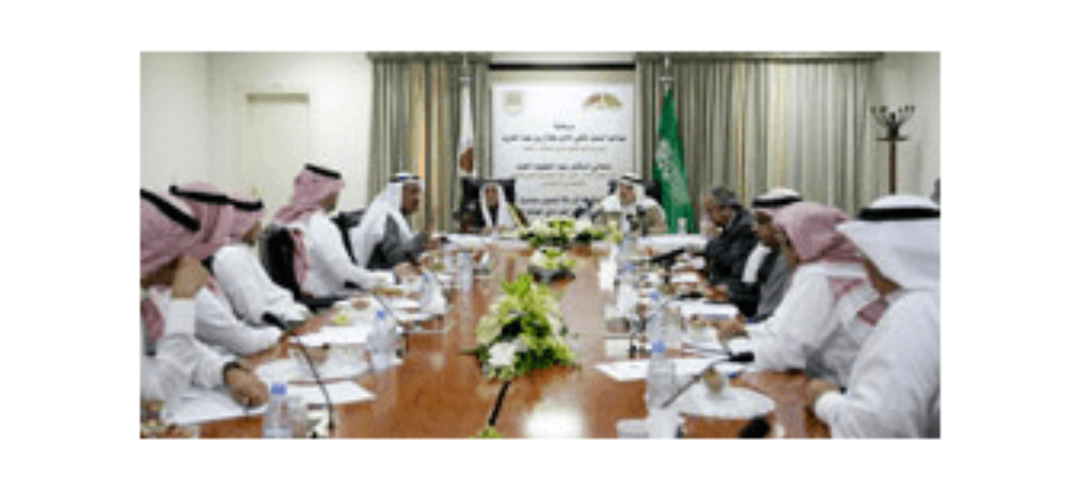News

Prince Talal: Bureaucracy Hinders the Establishment of a Bank for the Poor in Saudi Arabia
AGFUND and the Arab Fund Signed an Agreement in Favor of the Microfinance in the Arab World Prince Talal: Bureaucracy Hinders the Establishment of a Bank for the Poor in Saudi Arabia Al-Hamad: No Chance for any risk in the investment in the projects for the poor Prince Talal Bin Abdulaziz, the president of AGFUND said: “The Kingdom of Saudi Arabia is in ultimate need for the establishment of a bank for the poor, but there are “artificial obstacles” that impede this project. His Highness noted that the Custodian of the two Holly mosques, King Abdullah Bin Abdul Aziz, has himself declared that there are poor people in the Kingdom. His Highness wondered asking: “why a bank for the poor can’t be established in Saudi Arabia, even though the idea of the project has originally been launched by AGFUND which has its headquarters in Saudi Arabia? Prince Talal said that the reason behind this lies in the bureaucracy. Prince Talal Bin Abdul Aziz was answering the questions of the reporters as he was signing the agreement in favor of the banks for the poor. The president of AGFUND and His Excellency Dr. / Abdul Latif Al-Hamad, the Chairman of the Board and the Manager General of the Arab Fund for the Economic and Social Development, as being the manager of the special account for financing the small and medium projects, have signed a financing agreement, in accordance with the terms of which the “Arab Fund” shall participate with an amount of 5 million dollars in supporting AGFUND’s credit facilities that is intended for the expansion in financing the banks for the poor in the Arab world. The Ceremonial for signing the agreement has been held in AGFUND’s main headquarters in Riyadh at one pm, on Tuesday, January 10, 2012. This agreement goes in context with the initiative that has been launched by AGFUND in the year 2011 declaring by this the establishment of (credit facilities) for supporting the industry of the microfinance and providing financial services for the banks of the poor that it has previously established as well as the other microfinance institutions in the Arab world. The first of the microfinance institutions that shall benefit out of the resources of “AGFUND’s credit facilities” is Al-Watani bank for financing the small projects in Jordan. This is considered the first bank for the poor that has been established by AGFUND with the partnership of the private sector. On Wednesday, January 11, prince Talal shall sponsor a symposium in Riyadh under the theme of “Microfinance and Social Business”. This symposium shall be held in cooperation between AGFUND and the Council of the Saudi Chambers of Commerce. In this Symposium, Professor Muhammad Yunus, the leader of the bank for the poor in the world shall be participating.. In his answers to the questions asked by the reporters, Prince Talal confirmed the importance of the partnership of the media with the developmental bodies in addition to handling and dealing with the developmental issues with transparency. His Highness also spoke at length about the role of the businessmen in establishing the banks for the poor, adding that three Saudi businessmen have participated in “AL-Amal” Bank, the very successful bank for the poor in Yemen. He has also mentioned that one of the businessmen has offered the allocation of 200 million riyals to contribute in the establishment of a bank for the poor in Saudi Arabia. From his side, Dr. / Abdul Latif AL-Hamad has valued the current strategic cooperation binding between the Arab Fund for the economic and social development and AGFUND, referring in this regard to the fact that the Arab Funds allied in the “cooperation group” have roles and specializations and that the cooperation between them is institutional. Al-Hamad has denied that there might by any “risk” in the steps and procedures that AGFUND takes in establishing microfinance banks in poor countries that may also be suffering from security problems. He added that the clear success opportunities actually decrease the “risk” if originally found. He additionally said that the important matter is to manage issues in a good way and noted that Kuwait also is in need of a bank for the poor but as a matter of fact the “doubled bureaucracy” imbeds the initiation of a project as such. The CEO of AGFUND, Nasser Bakr AL-Kahtani, said that the signed agreement with the Arab Fund shall powerfully drive forward the efforts of AGFUND in the field of wide-spreading of the banks for the poor. By this, it creates a very distinctive partnership model in support of linking the small and micro projects with the medium ones. He also stated that this partnership shall enable the banks for AGFUND to proceed forward in providing products that meet the market requirements as well as the needs of the poor, referring by this to the services of “saving, credit, and insurance” The credit portfolio is expected to reach 100 million dollars by the end of the year 2015 Al-Kahtani has also ensured the importance of differentiating between the “social business” that forms the basis of the works for banks for the poor, and the social responsibilities or charity work. He referred in this regard to the point that the banks for the poor are profitable yet the profits of which are invested and circulated in order to develop and enhance the project. AL-Kahtani has also confirmed that the set obstacles in the path of establishing a bank for the poor are by no means political reservations but are bureaucratic ones, as described by prince Talal.